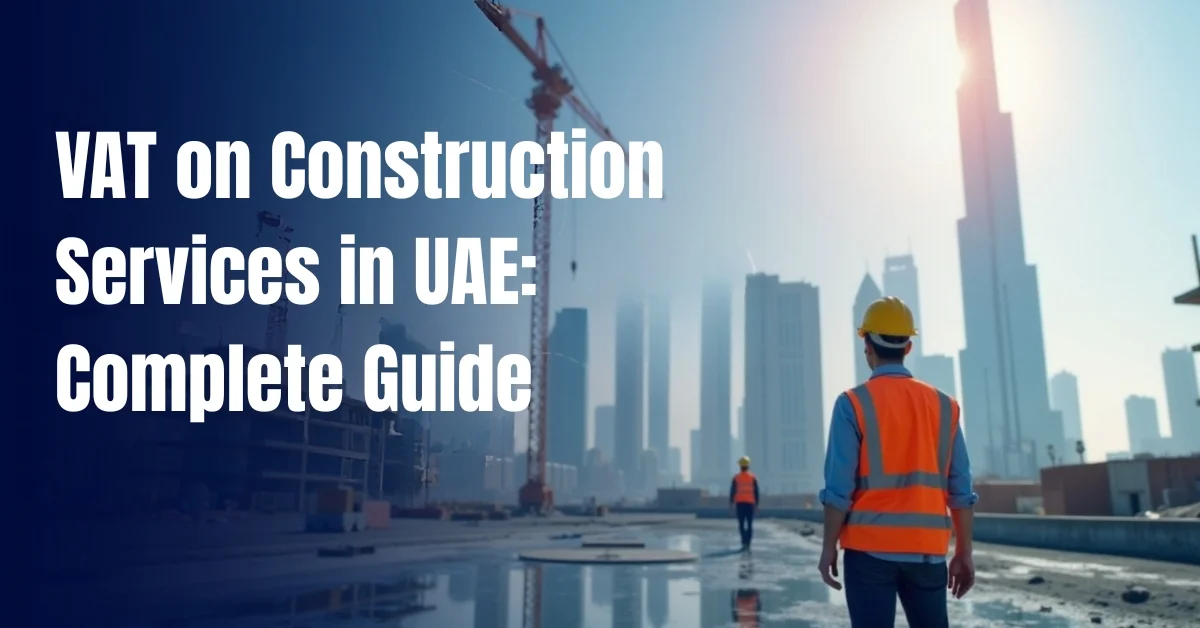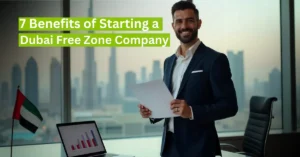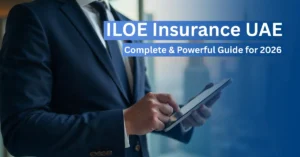The introduction of Value Added Tax (VAT) in the United Arab Emirates (UAE) reshaped the way businesses operate, particularly in sectors like construction. Since its implementation in January 2018, VAT has become a key part of the UAE’s taxation system, helping the country diversify its revenue beyond oil.
The construction industry, being one of the most active sectors, is directly affected by VAT regulations. Contractors, developers, and subcontractors must understand how VAT on construction services works to avoid penalties and ensure compliance with Federal Tax Authority (FTA) rules.
Understanding VAT on construction services is not just about taxation; it’s about ensuring accurate project costing, legal compliance, and transparent dealings across every level of the supply chain.
What Is VAT on Construction Service?
VAT on construction services refers to the 5% value-added tax charged on most construction-related activities in the UAE. It applies to the supply of goods and services provided by contractors, subcontractors, or developers involved in the construction, repair, alteration, or demolition of structures.
Under UAE VAT law, construction services are considered taxable supplies unless explicitly zero-rated or exempt. For instance:
- Construction of a new residential building may be zero-rated.
- Construction of commercial buildings is subject to the standard 5% VAT rate.
The UAE Federal Tax Authority defines construction services broadly to include labor, materials, design, and engineering activities, all integral parts of the project lifecycle.
VAT Registration for Construction Companies
All construction companies operating in the UAE are required to register for VAT if their annual taxable turnover exceeds AED 375,000. Companies with a turnover between AED 187,500 and AED 375,000 may register voluntarily.
1. VAT Registration Process in the UAE
- Visit the FTA online portal.
- Create an account and submit your trade license, bank details, and financial documents.
- Receive your Tax Registration Number (TRN) upon approval.
Failing to register within the required period can lead to penalties, fines, and the inability to claim input VAT. Moreover, businesses that issue invoices without a valid TRN violate UAE VAT law and risk reputational and financial damage.
Applicability of VAT in the Construction Sector
In the UAE, the standard 5% VAT rate applies to most construction services. However, the rate may vary depending on the type of property being constructed.
Examples of VAT Application:
- New Residential Buildings: The first sale or lease within three years of completion is zero-rated.
- Commercial Properties: Construction, sale, or lease of commercial buildings (offices, malls, warehouses) is subject to 5% VAT.
- Government Projects: VAT applies unless the government entity is specifically exempted under FTA regulations.
Contractors and developers must carefully evaluate the project type before applying VAT to ensure compliance and avoid errors during invoicing.
Input and Output VAT in Construction Projects
Construction projects involve numerous transactions between suppliers, contractors, and clients. VAT applies at multiple levels, and understanding input and output VAT is essential for accurate accounting.
1. Output VAT
This is the VAT charged by a supplier (e.g., a contractor) on the sale of goods or services to a client. For example, if a contractor issues an invoice for AED 1,000,000, they must add 5% VAT (AED 50,000).
2. Input VAT
This refers to the VAT paid on purchases or expenses made by the business, such as raw materials, subcontractor payments, or machinery rentals. Input VAT can be reclaimed from the FTA during the VAT return process, provided the expenses are directly related to taxable business activities.
3. Common Errors to Avoid
- Claiming VAT on non-business expenses.
- Failing to issue tax-compliant invoices.
- Ignoring reverse charge obligations for imported materials.
Proper documentation and timely VAT filing help businesses avoid unnecessary penalties.
VAT on Subcontractors and Material Supplies
In large construction projects, multiple subcontractors are involved, making VAT handling more complex.
- Main contractors charge VAT on the entire service to the client.
- Subcontractors must also charge VAT to the main contractor for their part of the work.
When it comes to material supplies, VAT applies to both imported and locally purchased materials. For imported materials, businesses often deal with the reverse charge mechanism, which shifts the tax liability from the supplier to the buyer.
Accurate invoicing between the main and subcontractors ensures transparency and simplifies VAT reclaim during the filing process.
VAT on Residential vs. Commercial Construction
VAT treatment differs significantly between residential and commercial properties.
1. Residential Buildings
- Construction of new residential buildings is zero-rated at the first supply.
- Any subsequent sale or lease after the first three years is exempt from VAT.
2. Commercial Buildings
- Offices, shops, warehouses, and malls are subject to 5% VAT on both construction and sale.
- Input VAT can usually be reclaimed by VAT-registered businesses involved in commercial development.
3. Mixed-Use Projects
If a building serves both residential and commercial purposes, developers must apportion VAT based on the percentage of each use.
Understanding these distinctions ensures that businesses apply VAT correctly and avoid disputes with the FTA.
Reverse Charge Mechanism in Construction VAT
The Reverse Charge Mechanism (RCM) is a special VAT rule that applies when goods or services are imported into the UAE. Instead of the foreign supplier charging VAT, the UAE-based buyer accounts for both input and output VAT on the same transaction.
1. When RCM Applies
- Importing construction materials from overseas.
- Hiring foreign subcontractors for design or engineering services.
The RCM ensures tax neutrality while simplifying cross-border transactions. Proper documentation, such as import declarations and VAT invoices, is essential for compliance.
VAT Invoicing and Record-Keeping Requirements
Every VAT-registered construction company must issue tax-compliant invoices for its services.
A valid VAT invoice must include:
- Supplier and buyer details
- TRN (Tax Registration Number)
- Description of goods/services supplied
- Date of supply and invoice
- Total amount before and after VAT
- VAT amount charged
1. Record-Keeping Obligations
Under FTA regulations, businesses must retain all VAT records for at least five years, including:
- Invoices and receipts
- Contracts and agreements
- Bank statements
- Import/export records
Maintaining digital copies of invoices through accounting software improves accuracy and compliance.
Common VAT Challenges in the Construction Industry
VAT implementation has presented several challenges for construction companies in the UAE.
Frequent Issues Include:
- Misinterpretation of zero-rated and exempt supplies
- Incorrect VAT calculation on progress payments and retention amounts
- Delays in input VAT claims due to poor documentation
- Failure to apply the reverse charge correctly on imports
1. Penalties for Non-Compliance
The FTA imposes heavy fines for late registration, incorrect VAT returns, or invalid invoices. Penalties can range from AED 5,000 to AED 50,000, depending on the severity of the violation.
How to Ensure VAT Compliance for Construction Services
Staying VAT-compliant requires a proactive approach. Here are the key steps construction firms should follow:
- Register for VAT before crossing the taxable turnover threshold.
- Issue accurate tax invoices with all required details.
- Maintain updated financial records for audit purposes.
- Reconcile VAT returns regularly to avoid mismatches.
- Train your accounting team to understand FTA requirements.
1. Use Professional VAT Support
Working with VAT consultants helps construction companies navigate complex tax regulations, reduce errors, and avoid fines. Professional experts also assist with VAT registration, filing, audits, and dispute resolution.
Using reliable accounting software can automate invoicing, filing, and record-keeping, improving accuracy and compliance.
Ripple Business Setup – Your Partner for VAT Solutions
Ripple Business Setup is a trusted partner for businesses in the UAE seeking VAT guidance and compliance support.
With extensive experience in tax registration, accounting, and business setup, Ripple helps construction companies streamline VAT processes, from registration to filing. Their team ensures every client remains compliant with UAE FTA construction VAT laws and avoids costly penalties.
📞 Contact Ripple Business Setup:
- Phone: +971 58 595 0101
- Website: ripplellc.ae
FAQ
1. Is VAT charged on government construction projects in the UAE?
Yes, VAT applies unless the government entity is specifically exempt under FTA rules.
2. How can a contractor claim VAT refunds on expenses?
VAT refunds can be claimed by submitting a VAT return to the FTA, provided all invoices and documentation are valid and directly related to business operations.
3. Are labor charges in construction subject to VAT?
Yes, labor services provided by contractors and subcontractors are subject to 5% VAT.
4. What happens if VAT is not included in the quotation?
If VAT is not clearly mentioned, the quoted price is considered inclusive of VAT under FTA regulations.
5. Can input VAT be claimed on tools and machinery?
Yes, input VAT can be claimed if the equipment is used exclusively for taxable construction activities.
Conclusion
Understanding VAT on construction services in the UAE is essential for contractors, developers, and property owners. From registration and invoicing to applying the correct VAT rate, every step requires accuracy and compliance with FTA laws.
Proper VAT management not only ensures legal compliance but also builds trust with clients and government authorities.
For professional assistance in VAT registration, filing, or compliance, reach out to Ripple Business Setup your reliable partner in navigating the UAE’s construction VAT system effectively.






